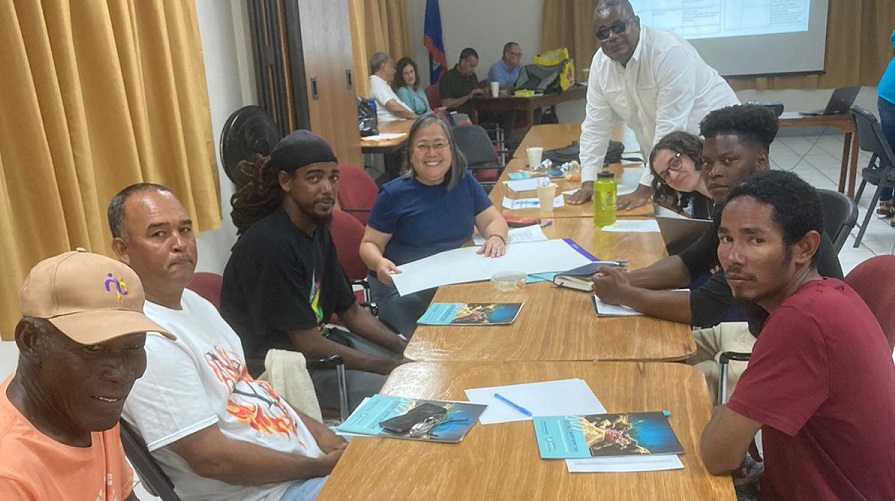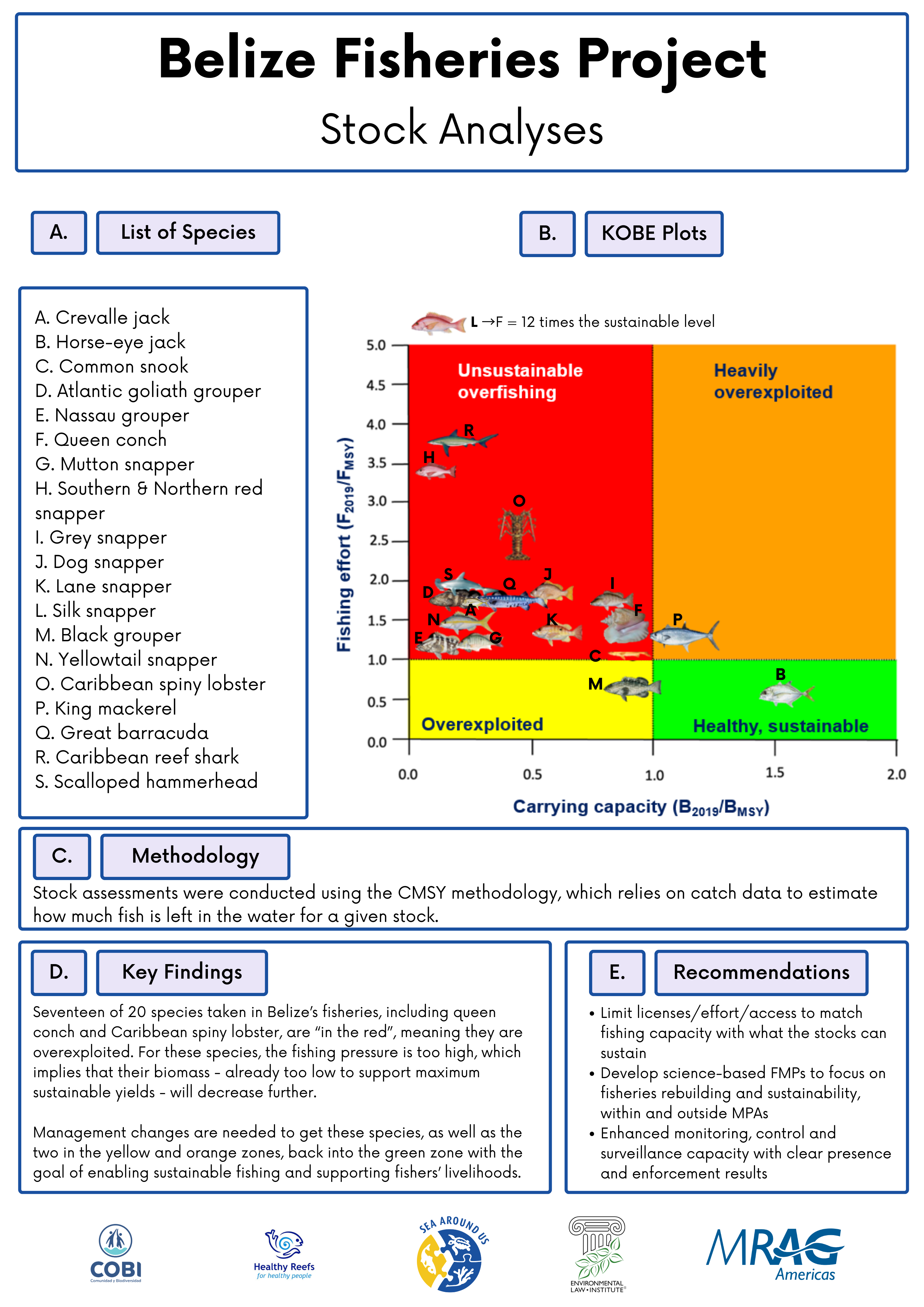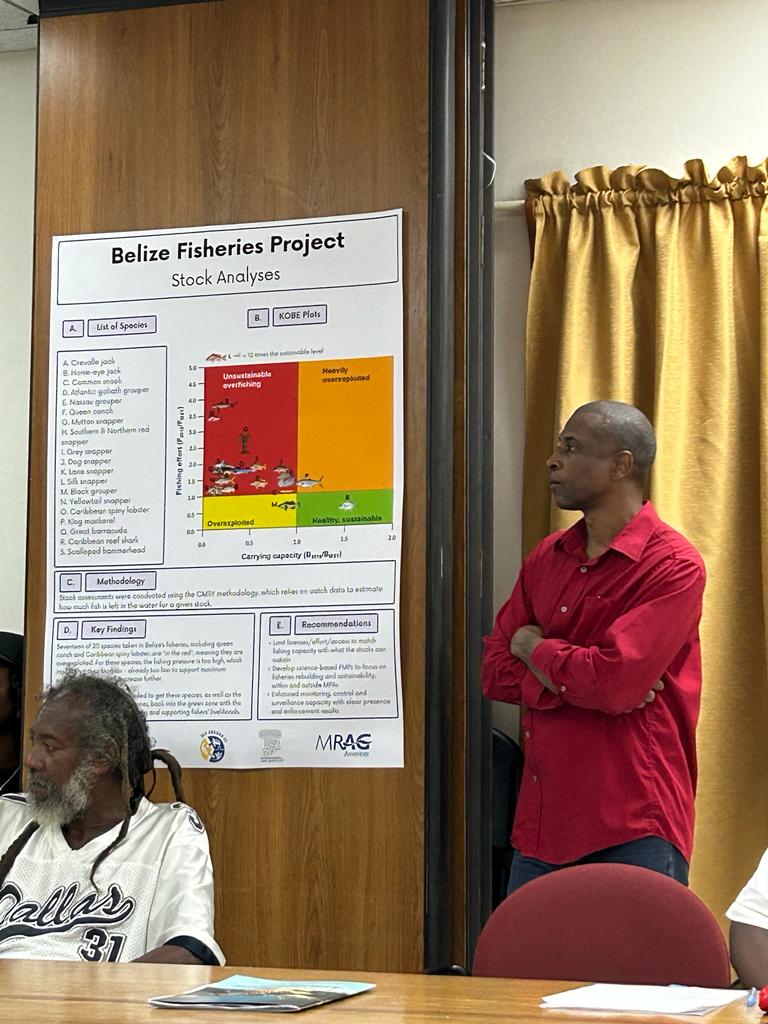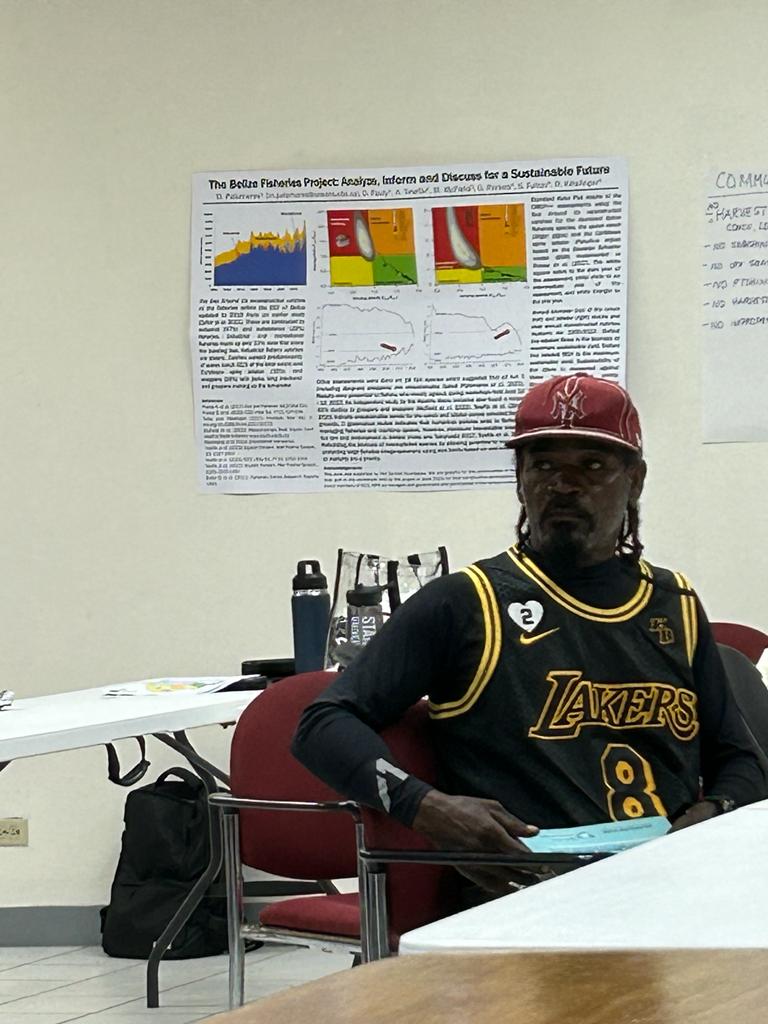
The Sea Around Us project manager, Dr. Maria ‘Deng’ Palomares, with Belizean fishers. Photo by the Belize Fisheries Project.
Belizean fishers’ experience in the water confirms the declining trends in fishery catches – and, therefore, in fish populations – uncovered by the Belize Fisheries Project (BFP), of which the Sea Around Us is a member together with Comunidad y Biodiversidad (COBI), the Environmental Law Institute (ELI), Healthy Reefs for Healthy People Initiative (HRI) and MRAG Americas.
During a series of workshops and meetings held in June and December 2023, fishers endorsed the findings of the stock assessments carried out by the Sea Around Us with the support of the BFP colleagues, which show that commercially important species such as conch and lobster are overfished. In fact, they even said that the situation had worsened in the span of the six months between one workshop and the other, with the 2023 lobster season – which started on July 1, 2023, and ends on February 28, 2024– being particularly bad.
Belizean catches consist mostly of queen conch, which represents 21 per cent of the total catch, Caribbean spiny lobster, which represents 10 per cent, and a variety of snappers, which represent 26 per cent of the catch. The remainder consists of jacks, king mackerel and groupers.
The Sea Around Us performed stock assessments using the CMSY++ methodology for 18 fish and invertebrate species. The results suggested that most species are unsustainably fished. At the same time, an independent study by the Healthy Reefs Initiative also found a 60 per cent decline in groupers and snappers and marine ecologist Alexander Tewfik and colleagues documented unsustainable trends for conch and lobster across selected fishing grounds.
As the below poster shows, for conch and lobster; crevalle jack; dog, grey, lane, mutton, silk, northern red, southern red and yellowtail snapper; scalloped hammerhead and Caribbean reef sharks; Atlantic grouper and Nassau grouper; snook and barracuda much fishing effort is needed to catch only a few fish. In other words, their stocks are overfished and undergoing overfishing.
Black grouper is in the overexploited category, that is, there are only a few fish left in the water.
Only horse-eye jack is in the healthy category, which means there are still lots of fish in the water.
What to do
In light of these results, which were preliminarily presented in June 2023, the 107 fishers that participated at least in one of the workshops organized by the BFP with the support of the Belize Federation of Fishers agreed that changes were needed to reverse current trends and improve the fisheries. They also said they want to participate actively in these changes.
Fishers had varied experience levels, ranging from one or two years of experience fishing to 40 years or more, and hailed from 17 fishing localities.
One of the first things they pointed out was that stronger enforcement —both internally from the fishing community and externally from official entities— is needed because it is urgent to put an end to practices such as the catch and sale of undersized and out-of-season products, the catch of berried female lobsters, the smashing of undersized conch to look for pearls, poaching from shades and traps, and the improper disposal of conch shells.
Participants also said that the system for licensing commercial fishers needs to be reformed to reduce the number of licenses. Fishers suggested this might be achieved by eliminating licenses for non-citizens and for citizens who do not make their living primarily from commercial fishing, through auditing existing licenses to remove old or duplicate licenses, and by assessing each of the ‘managed access’ fishing zones to determine the number of fishers that the zone can support and then adjusting the number of licenses accordingly.
Other ideas that fishers volunteered extending closed seasons, increasing minimum catch sizes for conch and lobster, and implementing science-based quotas.
To learn more about the work of the Belize Fisheries Project, visit the Summary report on stakeholder workshops and meetings.




